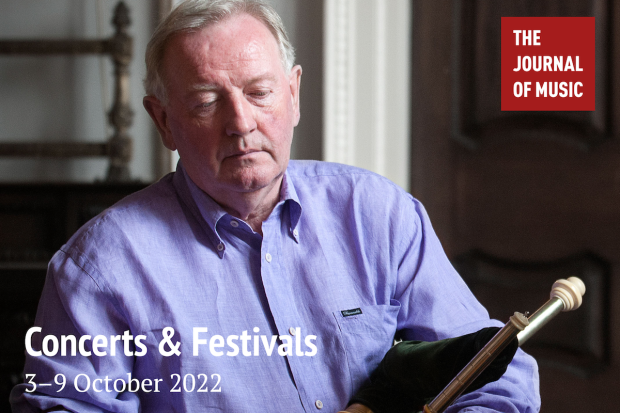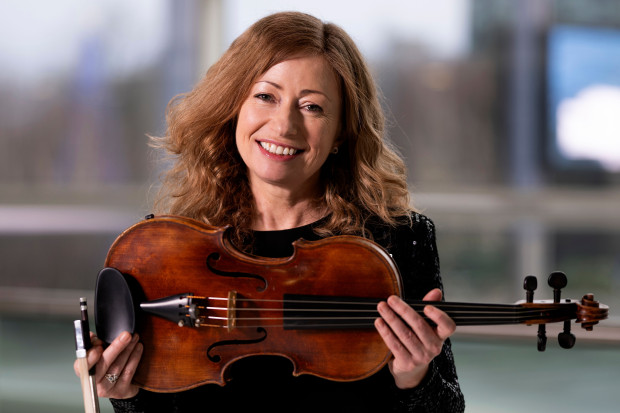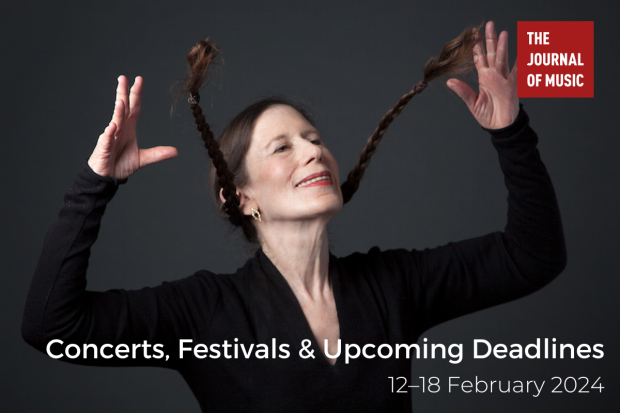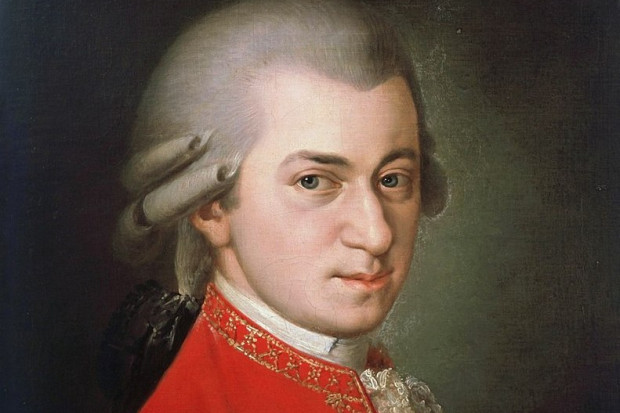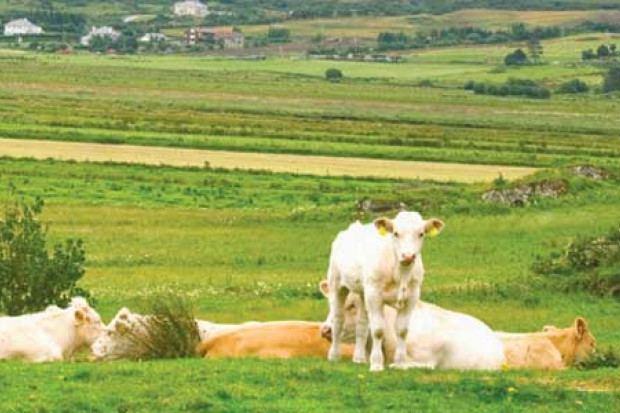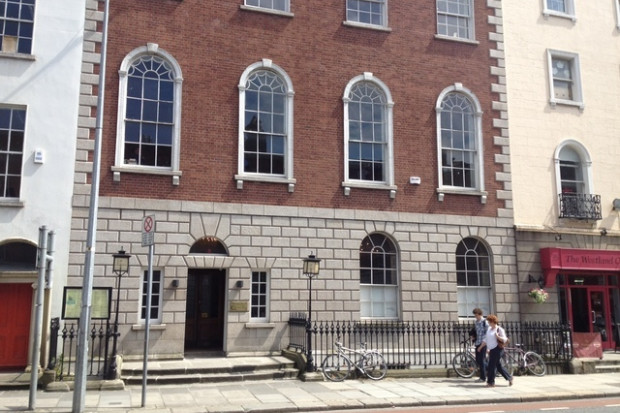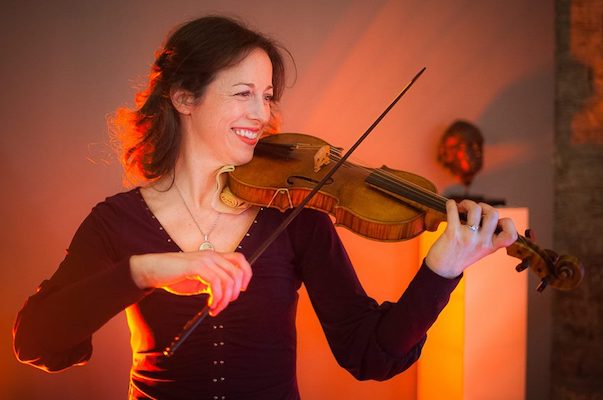
Claire Duff (photo: Maciej Janus)
Baroque Music is Liberating: An Interview with Claire Duff
Claire Duff always loved Baroque music, through her early studies at the Royal Irish Academy of Music, playing in groups such as the Irish Youth Baroque Orchestra or the Dublin Orchestral Players, and on to Trinity College Dublin where she studied music and French. But it was a summer course with the London group Parley of Instruments that introduced her to the historical instrument itself:
Literally on the first day when I picked up a Baroque violin and started playing the instrument – and listened to the musicians explaining why they’re playing on these instruments – it just clicked. I remember at the end of that day deciding that this is what I want to do.
There wasn’t much access to historical performance in Ireand at the time, with the exception of the Christ Church Baroque (now the Irish Baroque Orchestra), so she moved to London to study at the Academy of Music with Monica Huggett and Pavlo Beznosiuk, then on to the Conservatorium van Amsterdam: ‘London and Amsterdam are the two best places to study historical performance’, she explains, ‘I… then joined the European Union Baroque Orchestra, which was a brilliant opportunity to work with different directors. But I’m a homebird so I always wanted to come back.’
Bridging the gap
Seven years ago, after a number of years in London performing with groups such as the English Concert, the King’s Consort and the Gabrieli Players, she returned to Ireland, where she now leads the Irish Baroque Orchestra. She also teaches at the RIAM – she is helping set up a historical performance department; and Duff is Artistic Director of the Irish Youth Baroque Orchestra, a one-week summer course.
The violinist describes her ‘mission’ when she returned to Ireland to help develop places for people to study historical performance, to bridge the gap that she experienced.
The experience of approaching music from an historically aware context is quite eye-opening and ear-opening for people. It’s very beneficial even if you decide you don’t specialise in that style. There’s something very energetic and joyful about Baroque music… it’s quite freeing for people… quite liberating.
Inspiring and inspired by Bach
Next week, starting on Saturday 16 February, Duff embarks on a Music Network tour with French harpsichord player Benjamin Alard – their first time working together – performing a programme called ‘Inspiring Bach’.
We came up with the title… because Bach was inspiring us – and he has obviously inspired composers through to today – but Bach himself was also inspired by other composers. … So there’s an Italian connection in our programme – that’s why we start with a Corelli Sonata.
There will also be a Bach fugue based on a theme by Corelli, Bach’s ‘Italian concerto’, and a violin and basso continuo sonata (BWV 1021) in which, Duff says, ‘you can definitely hear the Italian influence’. Other sonatas for violin and harpsichord are also interesting to Duff and Alard because with them Bach is establishing the duo for the first time.
For these sonatas No. 4 and 6, the [harpsichord] right hand has as an obbligato part, an equally important part to my violin, so there’s a real dialogue … Then there’s a bass part too so it turns it into a trio sonata with two equal upper-voice parts and then the bass – that’s quite exciting to play.
Beautiful and atmospheric
Also on the programme will be a newly commissioned work by Jane O’Leary, a homage to Bach called Fantasia. Duff, who has been involved with other contemporary music projects such as a concert with the Irish Composers’ Collective, enjoys working with composers, saying it’s a privilege to have them in the room with you, to find out ‘exactly what’s intended’.
In Fantasia, Duff believes O’Leary is ‘enjoying exploring the difference between the violin and the harpsichord’.
I think she’s inspired by Bach’s writing, and how you have to start with a very simple idea and expand this and turn it and explore it from different angles… It’s a very beautiful, very atmospheric piece.
The ’Inspiring Bach’ tour will begin on Saturday 16 February at St Finian’s Church in Dublin, and will the visit Birr Theatre and Arts Centre (17 Feb.), Station House Theatre in Clifden (19 Feb.), Pavilion Theatre in Dún Laoghaire (20 Feb.), City Hall in Waterford (21 Feb.) and St John’s Theatre and Arts Centre in Listowel (22 Feb.).
For further information and tickets, visit www.musicnetwork.ie.
This preview is supported by Music Network.












